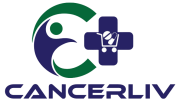Frequently Asked Questions
Cancer is a leading cause of death worldwide. Are we making progress? A diagnosis can be stressful, but knowing what to expect can help. This overview covers cancer basics, symptoms, detection, treatments, and post-treatment care.
General
There are over 100 different types of cancer, categorized by the cells in which they originate.
Common symptoms include unexplained weight loss, fever, fatigue, pain, skin changes, and changes in bowel or bladder habits.
Cancer is caused by changes to genes that control the way our cells function, especially how they grow and divide.
Early detection of cancer can lead to more effective treatment, significantly improving the likelihood of survival.
Cancer diagnoses are often based on imaging tests, biopsies, and laboratory tests.
Common treatments include surgery, radiation therapy, chemotherapy, immunotherapy, and targeted therapy.
No, cancer is not a contagious disease and cannot be transmitted from person to person.
The effects of cancer and its treatment vary but can affect the normal functions and
systems.
Yes, cancer can go into remission, which means that signs and symptoms of cancer are reduced or disappear.
Questions might include asking about treatment options, side effects, the goal of the treatment, and the likelihood of remission.
Support can include helping with daily tasks, attending appointments, providing emotional support, and ensuring they have company during treatments.
Yes, there are many support groups and resources available for cancer patients and their families.
Depending on the type and treatment of cancer, some patients may need to adjust their diet to manage side effects and meet nutritional needs.
Cancer treatment can have significant psychological impacts, including stress, anxiety, and depression.
Palliative care focuses on providing relief from the symptoms and stress of a serious illness, aiming to improve quality of life.
Yes, cancer can recur after treatment, which is why regular follow-up care is important to monitor for signs of recurrence.
Research studies are conducted to explore new approaches in cancer care. Talk with your doctor to determine whether joining a study is a suitable option for you.
Reputable sources include the World Health Organization, national cancer institutes, and
major cancer research centers.
Related Topics
Cancer vaccines are rapidly evolving as a cornerstone of modern oncology, harnessing the immune system to fight cancer more effectively than ever before.
In the ongoing battle against cancer, scientists are constantly exploring innovative ways to enhance the efficacy of treatments.
Cancer treatment can be prohibitively expensive, encompassing direct medical costs such as surgery, chemotherapy, radiation, and medication,
